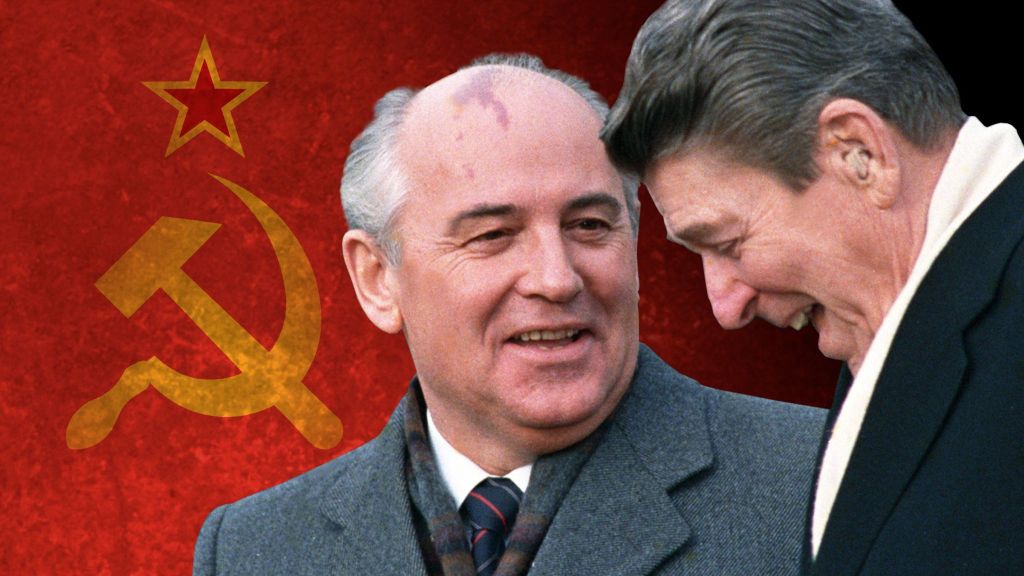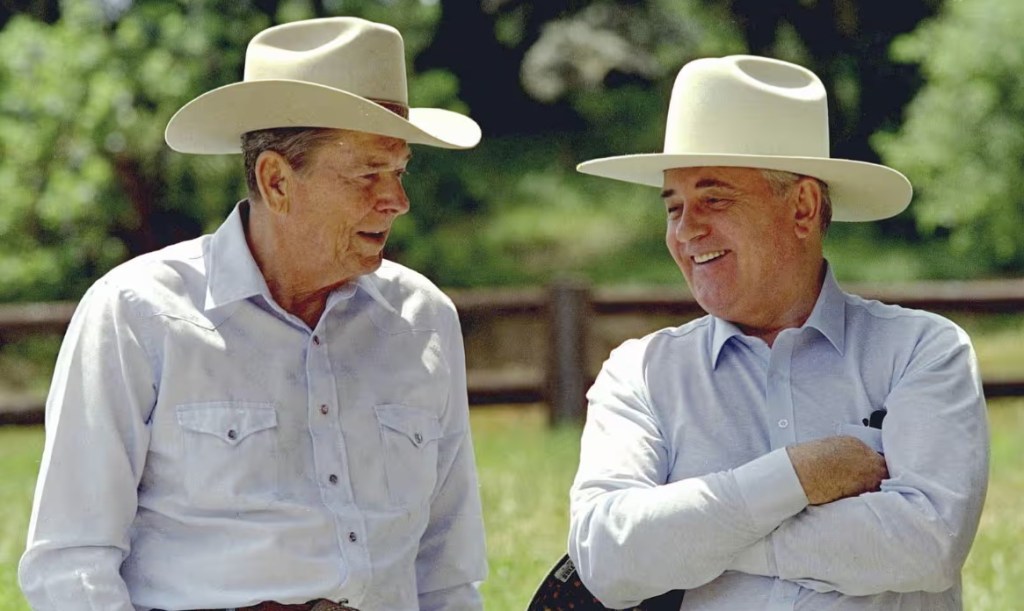When the Politburo unanimously elected Mikhail Gorbachev as the eighth General Secretary of the Communist Party of the Soviet Union in 1985, the USSR wasn’t in a great place. The cowboy bravado of Ronald Reagan had lead to military spending to ride to 27% of its GDP; production of civilian goods was frozen at 1980 levels; US financing of Mujahideen warlords to overthrow socialist leaders in Democratic Republic of Afghanistan ensured the war in that country was an absolute disaster (and would later be referred to as “The Soviet Union’s Vietnam“); and general faith in the leading party was at a historic low. It was clear that some changes would be needed. And ol’ Mikky G believed he had just the plan.
Firstly, Gorbachev wound down the USSR’s power around the world. He retreated from Afghanistan, likely assuming the $20 billion that the CIA had donated to train and arm the jihad resistance groups was unlikely to ever have any longterm effects. He went all smiles and waves to the hawkiest of hawks (and now 43 year champion of the “Reason For Everything Wrong In the World” award) Ronald “Rawdog” Reagan, making the landmark agreements that they would scale back the arms race with the small concession that America still carry on doing the exact same shit. His “Sinatra Doctrine” threw the USSR’s hands up in regard to the Soviet Union’s satellite states, allowing them to do it their way and conceding power to the nationalists and the fascists. Secondly, there would be the concept of ‘perestroika’ (перестройка/restructuring), which were economic reforms that essentially dismantled the planned economy without any suggested alternative mechanism. It also introduced market factors, being the softlaunch of capitalism and conceding power to the new bourgeois. It also meant McDonalds and future Pizza Hut adverts. Yay.
And then there was glasnost (гласность/transparency), the ultimate liberalisation of the Soviet Union. Gorby essentially opened up the USSR’s ‘Marketplace of Ideas’. The previous Marxist perspective on ‘free speech’ was probably best explained in Mao’s ‘Oppose Book Worship’ (反对本本主义): “no investigation, no right to speak”. Not everyone is assumed to know enough to speak on anything. Now, the USSR would work from Western, liberal rules. Anything goes. All bullshit is as valid as the next. And “free speech” meant what “free speech” means to this day: reactionary right wing potato heads using racism and sexism to further their own desires for profit and accumulation.
i’ll mention the album soon i promise



